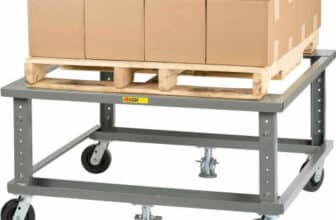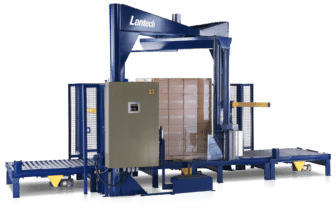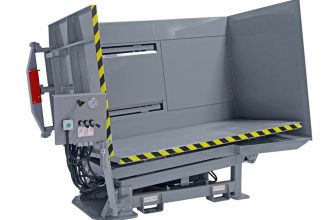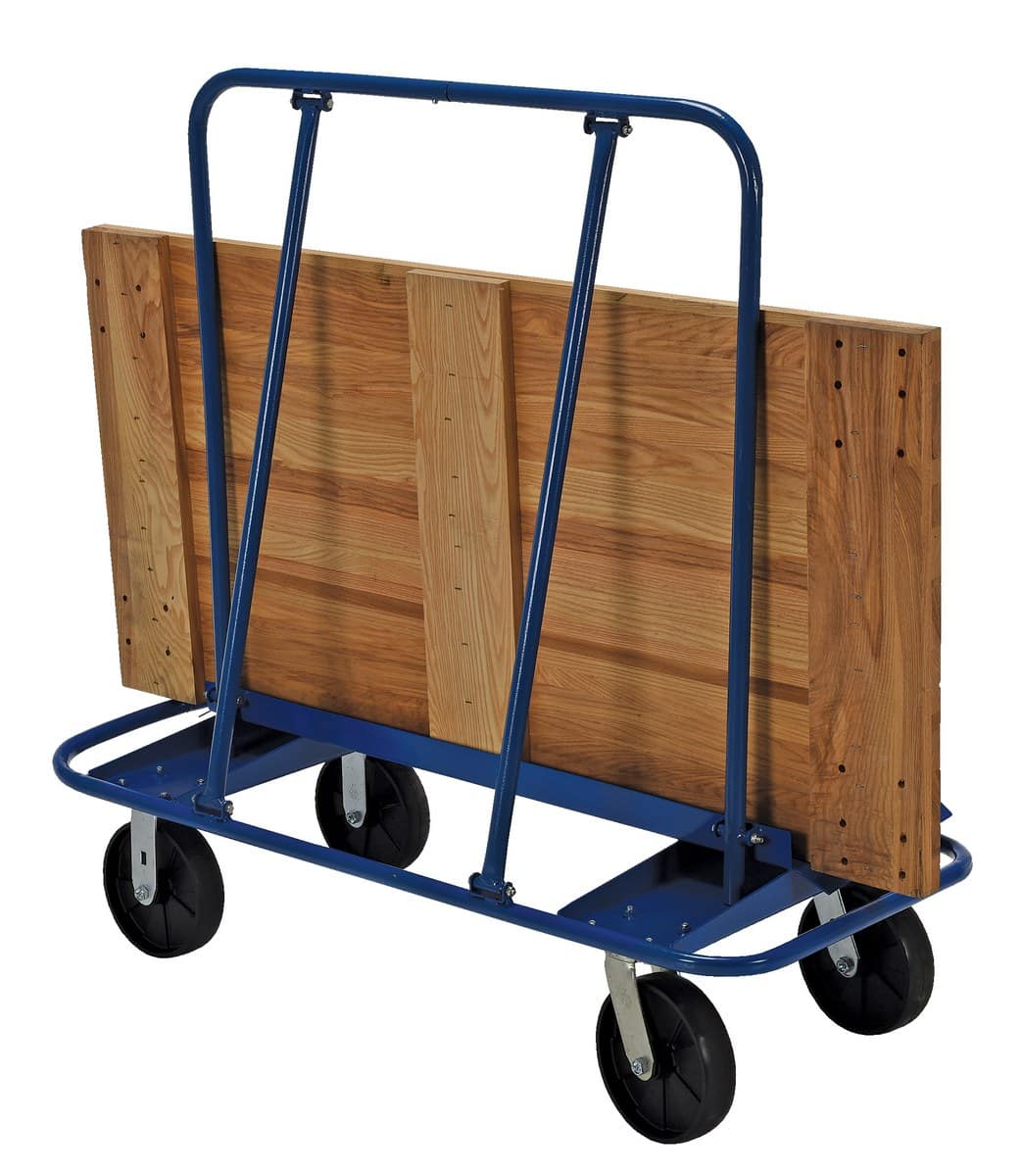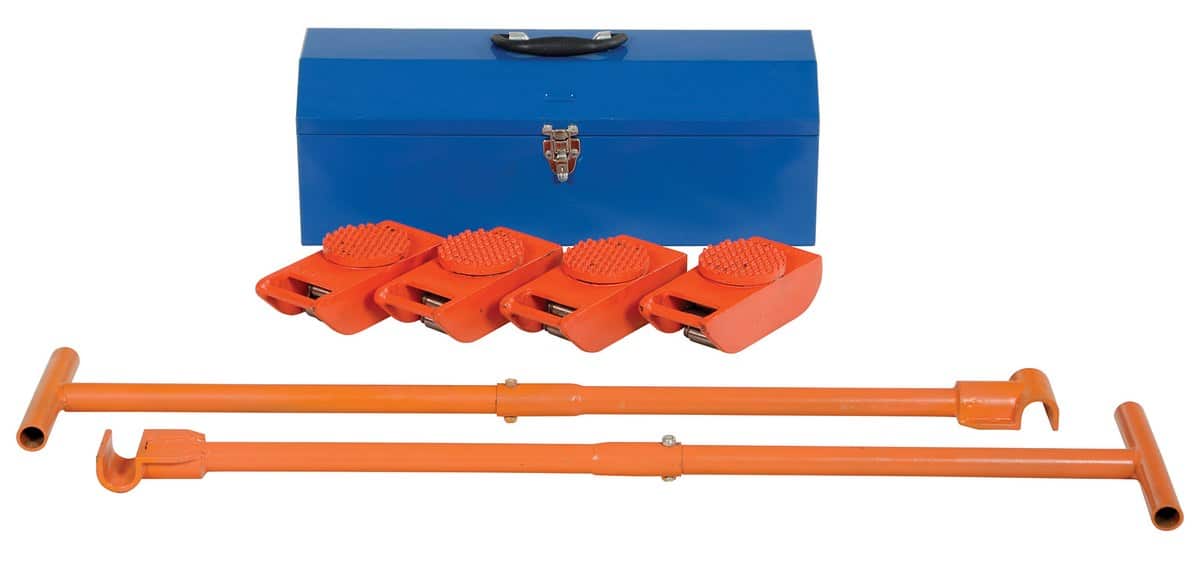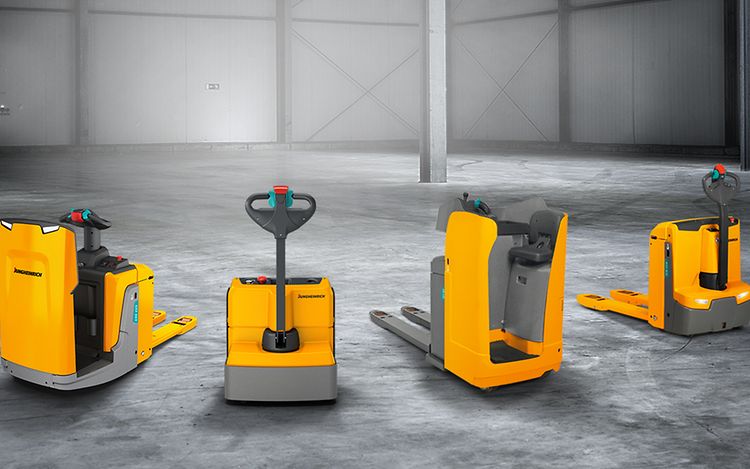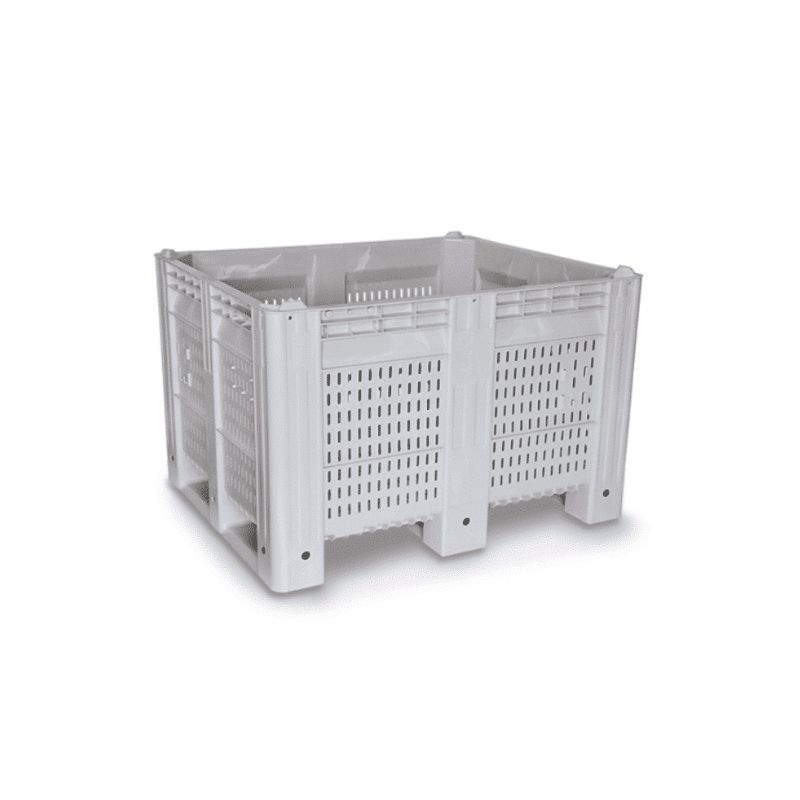
Enhancing warehouse efficiency is a crucial aspect of modern supply chain management. One often overlooked solution for optimizing storage and organization is the use of forklift storage bins. Forklift bins provide a practical and efficient way to store and transport various items within a warehouse. In this article, we will explore the benefits of forklift storage bins, their applications, and how they can contribute to a streamlined warehouse operation.
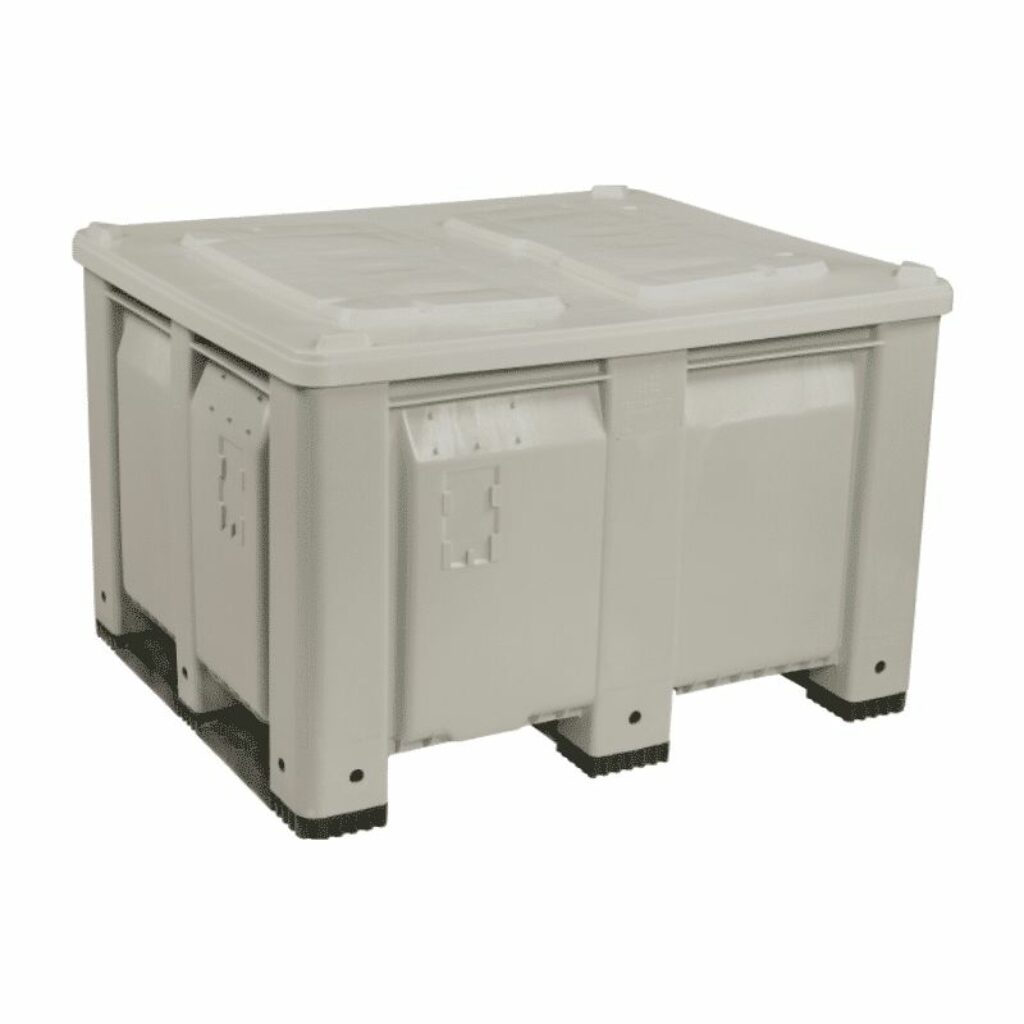
Benefits of Forklift Storage Bins
Forklift storage bins offer numerous advantages that can significantly improve warehouse efficiency:
- Increased Storage Capacity: Forklift bins utilize vertical space effectively, allowing for better utilization of warehouse height and maximizing storage capacity.
- Enhanced Organization: By providing designated spaces for specific items, forklift storage bins improve organization and enable quick and easy retrieval, reducing search time and increasing productivity.
- Improved Inventory Management: Forklift bins aid in inventory tracking and control, making it easier to monitor stock levels, conduct accurate stock counts, and optimize replenishment processes.
- Safety and Damage Prevention: These bins are designed to securely hold items, reducing the risk of damage during transportation. They also promote safe stacking practices, preventing accidents and minimizing workplace hazards.
Applications of Forklift Storage Bins
Forklift storage bins find wide-ranging applications across different industries:
- Manufacturing Facilities: Forklift bins are indispensable in manufacturing facilities, enabling efficient storage and movement of raw materials, components, and finished products. They facilitate just-in-time production processes and promote seamless workflow.
- Distribution Centers: Forklift bins play a crucial role in distribution centers, allowing quick and accurate sorting, staging, and loading of goods onto delivery trucks. This ensures timely order fulfillment and enhances customer satisfaction.
- Retail Warehouses: In retail warehouses, forklift bins aid in organizing and storing various items, such as consumer goods, electronics, and clothing, making inventory management and stock replenishment more efficient.
- Automotive Industry: Forklift storage bins are instrumental in the automotive industry, where they help store and transport spare parts, components, and assemblies. They contribute to lean manufacturing practices and facilitate smooth production operations.
- Food and Beverage Industry: Forklift bins are widely used in the food and beverage industry for storing and transporting perishable goods, such as fruits, vegetables, dairy products, and beverages. These bins are designed to meet specific hygiene and safety requirements, ensuring the integrity and freshness of the products.
- Cold Storage Facilities: Forklift bins are essential in cold storage facilities, where temperature-controlled environments are necessary for storing items like frozen foods, pharmaceuticals, and sensitive chemicals. These bins are often insulated and equipped with features to maintain the optimal temperature, allowing for efficient storage and retrieval.
- Waste Management: Forklift storage bins are employed in waste management operations, enabling the collection and transportation of various types of waste materials. These bins are designed to withstand heavy loads and harsh conditions, ensuring safe handling and disposal of waste.
- Construction Sites: Forklift bins are utilized on construction sites for organizing and transporting construction materials, such as bricks, cement bags, pipes, and lumber. They enhance the efficiency of material handling, reducing manual labor and accelerating construction timelines.
- Hospital and Healthcare Facilities: Forklift storage bins are used in hospitals and healthcare facilities for the movement and storage of medical supplies, equipment, and pharmaceuticals. These bins are often designed with features like dividers and adjustable shelves to ensure organized storage and easy access to essential items.
- E-commerce Fulfillment Centers: With the exponential growth of e-commerce, forklift bins play a crucial role in fulfillment centers. They enable efficient picking, packing, and storage of various products, facilitating smooth order processing and faster shipment preparation.
- Agriculture and Farming: Forklift bins find applications in the agriculture and farming industry for the storage and transportation of crops, fertilizers, animal feed, and agricultural equipment. These bins are designed to withstand outdoor environments and can be easily loaded onto trucks for transportation to markets or processing facilities.
- Pharmaceutical Industry: In pharmaceutical manufacturing and distribution, forklift bins are used for organizing and transporting pharmaceutical ingredients, packaging materials, and finished products. These bins often meet specific regulatory requirements, such as being FDA-compliant and providing secure storage for controlled substances.
Overall, forklift storage bins offer versatile and efficient solutions for various industries, enabling streamlined operations, optimized storage, and seamless material handling. Their adaptability and ability to improve productivity make them a valuable asset in a wide range of applications.
Choosing the Right Forklift Storage Bins
When selecting forklift storage bins, it is essential to consider the following factors:
- Size and Capacity: Choose bins that accommodate the dimensions and weight of the items you typically handle in your warehouse. Ensure the bins can be easily maneuvered by forklifts and fit well within your existing storage systems.
- Durability and Material: Opt for sturdy and durable bins made of high-quality materials such as heavy-duty plastic or metal. These materials offer longevity, resistance to wear and tear, and can withstand demanding warehouse environments.
- Accessibility and Versatility: Look for bins that allow easy access to stored items, either through open-front designs or removable panels. Additionally, consider bins with stackable and nestable features to optimize space utilization.
- Labeling and Identification: Ensure the bins have suitable surfaces for labeling and identification, facilitating quick visual identification of contents, reducing search time, and promoting accurate inventory management.
FAQs
Can forklift storage bins be used with different types of forklifts?
Yes, forklift storage bins are designed to be compatible with a variety of forklifts, including counterbalance forklifts, reach trucks, and order pickers.
How can forklift storage bins improve worker productivity?
Forklift bins enable easy access and organized storage, reducing search time and promoting efficient inventory handling. This leads to increased worker productivity and faster order fulfillment.
Are forklift storage bins easy to clean and maintain?
Yes, most forklift storage bins are designed for easy cleaning and maintenance. They are often made of materials that are resistant to stains, rust, and other contaminants, making them simple to wipe down or wash when needed.
Can forklift storage bins be customized for specific needs?
Yes, many manufacturers offer customization options for forklift storage bins. You can request specific sizes, colors, labeling options, or additional features to meet your warehouse’s unique requirements.
How do forklift storage bins contribute to workplace safety?
Forklift storage bins promote safety in the workplace by providing designated storage spaces and secure stacking options. This reduces the risk of items falling or shifting during transportation, minimizing the chances of accidents or injuries.
Implementing Forklift Storage Bins Effectively
To maximize the benefits of forklift storage bins, consider the following tips for effective implementation:
- Proper Training: Provide comprehensive training to forklift operators on the correct handling and use of forklift storage bins. This includes safe stacking practices, weight limits, and proper loading and unloading techniques.
- Standardized Processes: Establish clear guidelines for the use of forklift storage bins, including labeling conventions, inventory tracking procedures, and bin placement protocols. Consistent processes streamline operations and reduce errors.
- Regular Maintenance: Conduct routine inspections of forklift storage bins to identify any signs of wear, damage, or defects. Repair or replace damaged bins promptly to ensure optimal functionality and longevity.
- Continuous Improvement: Regularly evaluate the effectiveness of forklift storage bins in your warehouse. Solicit feedback from employees and seek opportunities for improvement, such as optimizing bin placement or exploring new technologies.
Conclusion
Forklift storage bins provide an efficient and practical solution for enhancing warehouse efficiency. By maximizing storage capacity, improving organization, and streamlining inventory management, these bins contribute to a streamlined and productive warehouse operation. When implemented effectively and supported by proper training and maintenance, forklift storage bins can significantly improve overall workflow, productivity, and safety.
#WarehouseEfficiency #ForkliftStorageBins #StreamlinedOperations #InventoryManagement #WarehouseOrganization #SupplyChainOptimization #WorkplaceSafety #EfficientStorage #ProductivityImprovement #LogisticsManagement




